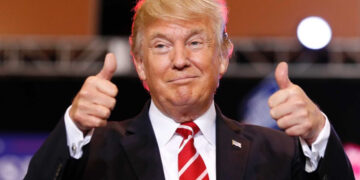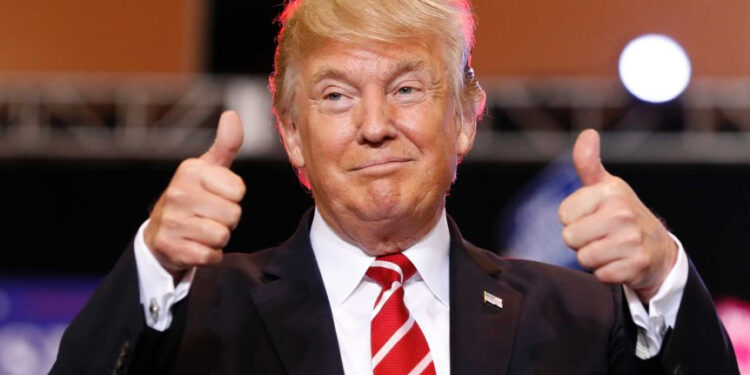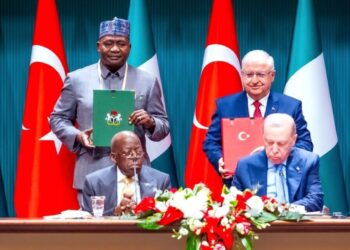A federal appeals court has temporarily blocked a lower court’s decision that declared the bulk of President Donald Trump’s global tariffs illegal, granting the administration a reprieve as it fights to preserve its trade policies.
The ruling, issued Thursday, suspends a Wednesday decision by the U.S. Court of International Trade in New York, which found that Trump overstepped his authority by imposing sweeping import taxes without congressional approval. The White House had swiftly appealed, arguing that the lower court’s intervention threatened ongoing trade negotiations and undermined presidential authority over economic policy.
“America cannot function if President Trump—or any president—has their trade negotiations railroaded by activist judges,” White House spokesperson Karoline Leavitt said shortly before the appeals court’s decision. Trump himself blasted the initial ruling on social media, urging the Supreme Court to overturn it “QUICKLY and DECISIVELY.”
The contested tariffs include a 10% blanket tax on imports from multiple countries, as well as higher “reciprocal tariffs” targeting China, the EU, Mexico, and Canada—measures Trump justified as necessary to combat fentanyl smuggling and unfair trade practices. The lower court had ruled that Trump improperly invoked the 1977 International Emergency Economic Powers Act to impose these levies, as the law requires congressional input for such broad trade actions.
However, the appeals court’s stay means the tariffs remain in effect while litigation continues, with the next hearing set for June 5. The ruling does not affect Trump’s steel, aluminium, and auto tariffs, which were enacted under separate national security laws.
The case has sparked fierce debate over presidential trade powers. Legal experts supporting the challenge, including George Mason University’s Ilya Somin, called the initial ruling a check on executive overreach, noting that the trade court’s bipartisan panel included a Trump-appointed judge.
“It’s not normal for a president to make such an enormous power grab and start the biggest trade war since the Great Depression,” Somin said.
Yet some analysts believe higher courts may ultimately side with Trump. Terry Haines of Pangaea Policy predicted that judges would likely defer to the president on trade matters.
For businesses, the legal uncertainty has been disruptive. Kara Dyer, owner of Story Time Toys, which imports goods from China, expressed cautious optimism but said the back-and-forth rulings have made planning nearly impossible.
“I was incredibly happy and relieved, but I’m still very cautious,” she said. “It’s been so chaotic. I just want some certainty.”
The Trump administration has signalled it will pursue alternative legal avenues to maintain tariffs if necessary. Trade adviser Peter Navarro vowed, “Even if we lose in court, we’ll do it another way.”
Options include expanding national security-based tariffs under Section 232 to sectors like semiconductors or invoking Section 301 (used for Trump’s China tariffs) or even a long-dormant 1930 law allowing 50% duties on nations deemed discriminatory.
The legal battle could ultimately reach the Supreme Court, where a ruling would set a major precedent on presidential trade authority. For now, businesses and trading partners must navigate a landscape where Trump’s tariffs remain in place—but on legally shaky ground.
“Trump’s big stick in trade negotiations just got a lot less intimidating,” said former WTO negotiator Dmitry Grozoubinski. “His leverage has taken a hit.”



































